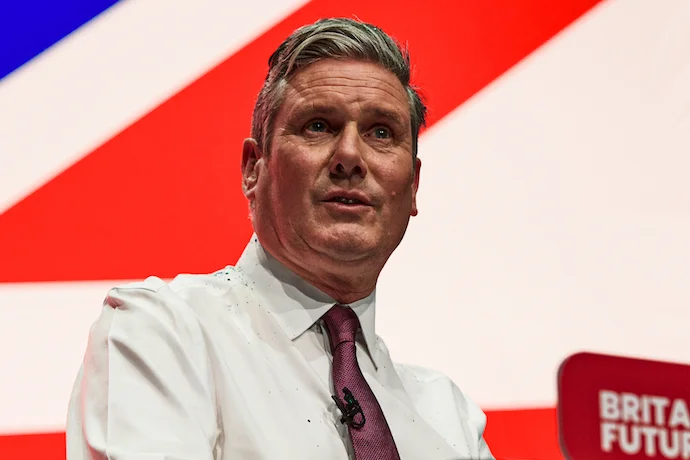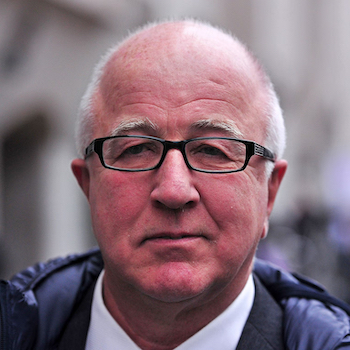
How Keir Starmer Rose Above the Fray
Britain’s new Prime Minister, Sir Keir Starmer, has risen to prominence as a leader of the European left, the same age as Clement Attlee, Labour’s most famous premier (1945-51). It was Attlee who transformed Britain by nationalizing most industries, creating a health service that remains free for every citizen, partnering with trade unions, and granting India and Pakistan their independence without the wars seen in French colonies from 1945 to 1958.
Starmer’s knighthood, a title that even seems to amuse Donald Trump, was earned when he was named Chief Prosecutor of England during Tony Blair’s government. Although he could have remained “Mister” Starmer, he accepted the title. Last week, he entered 10 Downing Street to begin his first-ever period of political office.
Attlee had been a renowned left-wing mayor of a poor East London working-class suburb, pioneering social housing and childcare policies. He was a minister in 1929, the Leader of the Labour Party in 1935, and Deputy Prime Minister in Winston Churchill’s cabinet during World War II. By the time Attlee, Harold Wilson, and Tony Blair became Labour prime ministers, they had years of political practice and experience from an early age.
Starmer, in contrast, had never sought election as an MP or even a local councillor. Instead, he was a lawyer specializing in human rights cases overseas, a field that grew significantly following the establishment of supra-national human rights conventions at the EU and UN levels. Starmer was no Robert Badinter or theatrical courtroom advocate specializing in dramatic appeals. He was a methodical, step-by-step lawyer who defended his clients with rational arguments based on legal precedents. This calm sobriety appealed to Tony Blair, leading to Starmer’s appointment as state prosecutor for England in 2008. He was a high-state functionary but not involved in politics.
In 2015, at the age of 50, he was elected as a Labour MP and served under Jeremy Corbyn, the Jean-Luc Mélenchon of Britain’s Labour Party. While other more experienced MPs challenged Corbyn, knowing his anti-European stance would guarantee Labour’s defeat and keep the Right in power, Starmer remained loyal. When Labour was defeated by Boris Johnson in 2019, Starmer put himself forward to be leader. All alternative candidates on the Left were discredited, as voters rejected Corbyn’s ultra-leftism.

Other more centrist candidates who had raised the banner of progressive reformist pro-European democratic socialism, in the tradition of Northern European social democrats, were demoralized, and some had been driven out of politics by the Corbynistas. Starmer, having no special profile, had made no enemies and was seen as professional and competent. He was fortunate as the Brexit-era Conservative prime ministers he faced were often incompetent, dishonest, and openly lied to Parliament.
Starmer promoted centrist Labour MPs as future ministers. They adopted Conservative economic practices, promising no increase in taxes on individuals. The broken public services of health, schools, care-homes, and railways would be improved through better management rather than new investment. He removed left-wing deputies and candidates, replacing them with men and women who supported policies appealing to the English middle classes.
The Labour leader avoided reopening the Brexit divide in Britain, refusing to challenge the 2016 plebiscite, which was partly financed by Vladimir Putin and supported by Rupert Murdoch’s press with continuous lies in both major papers like The Times and nearly all British tabloids. Starmer waited patiently for the Conservatives to make mistakes. Boris Johnson was forced to resign from the House of Commons after MPs decided he had lied once too often. Liz Truss, the pro-Brexit prime minister for 49 days, had to resign after proposing a financial program of tax cuts for the rich, leaving middle-class citizens facing massively increased interest rates on home loans. The international markets raised the cost of borrowing to finance the British state, and Conservative MPs removed Ms. Truss before she could do more damage.
The last Tory prime minister, Rishi Sunak, was like Emmanuel Macron, a clever Davos elite technocrat. Both men had been bankers—Sunak with Goldman Sachs and Macron with Rothschild—before deciding they were men of providence who should enter politics and go straight to the top job without any apprenticeship in the craft of professional politics. The Conservatives had a right-wing, racist, anti-immigrant, Islamophobic faction using identical language to Jordan Bardella and Eric Zemmour, leaders of France’s two racist extreme right parties, the National Rally and Reconquête. Starmer was fortunate that as Labour activists accepted his moderate social democratic leadership, the Conservatives resembled a right-wing Trotskyist sect full of personality clashes and open contempt for their leader, Rishi Sunak.
Starmer stayed calm and avoided radical rhetoric. His wife’s father was a Polish Jewish immigrant, and her mother converted to Judaism. The family—he has a teenage son and daughter—is not religious but keeps the Friday Shabbat evening family meal as a fixed point in their family life. While condemning the brutality of the Netanyahu government’s actions against innocent Palestinian women, pensioners, and children, Labour has repudiated the Islamophobic ideologues who want to use the Gaza conflict to support the elimination of Israel as a Middle East state.
Starmer has a passion for playing weekend football and watches all Arsenal games. In other words, he embodies a typical north London professional. He speaks no foreign languages and has never worked in Europe. While polls show 57% of British citizens now think Brexit was a mistake, there is no majority in the polls for a return to the EU if a new referendum were held. Labour over many decades was bitterly divided on Europe. The paradox of leaving the EU means that the Europe question no longer divides Labour, allowing the party to appear united on this historically divisive issue in British left politics.
Labour’s victory, securing 412 seats in the Commons with only 35% of the vote, highlights the British electoral system’s quirks. A rapid return of Great Britain as an EU member state seems unlikely. Nigel Farage’s Reform UK party made the biggest increase in vote share, 14% more than the Liberal Democrats or the Greens. If Starmer risked a referendum to return to the EU, he would lose.
Starmer made the correct judgment in his four years as party leader to place Labour where British voters are, rather than following what party-political ideologues and activists desire. He is in power for five years. As France and other European nations see the rise of anti-system populist nationalist parties, and countries like Germany and Spain struggle with quarreling coalitions under a left head of government, and across the Atlantic, the specter of President Trump menaces world peace and stability, Sir Keir Starmer has created a British politics that is stable, measured, and progressive, if not ultra-radical. It is not revolutionary, but it has won power. Perhaps comrades in European democratic left parties might come and learn how Labour has won power with a big majority.

